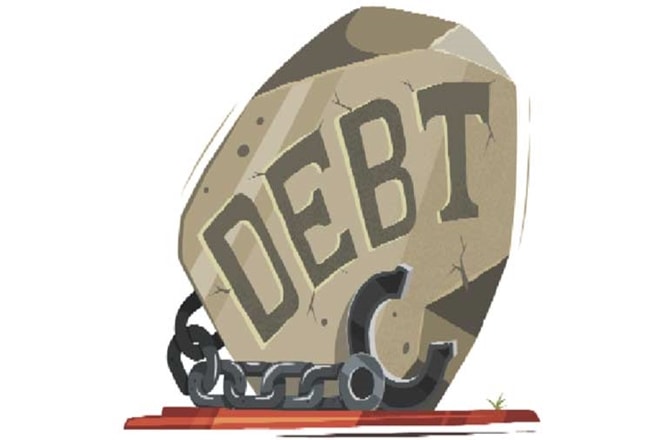‘Should I invest or pay off the existing debt’ is a kind of dilemma that is being faced by lots of investors these days. However, that is not an easy decision to make. Conservative prudence suggests that clearing debt should be given precedence over fresh investments. This not only reduces the financial risks associated with a person’s financial investments, but also gives psychological and emotional comfort which is so necessary for sound future planning. However, that is not always the case.
The first exception can be when the market conditions are such that one can comfortably earn more on the investments than the interest which one would save by prepayment of debt.
“This can be when the rates of interests are moving down and current investments in bonds would result in higher returns than the interest outgo on loans taken at an earlier date. It can also be a case of a very bullish sentiment in asset-linked markets like equities, real estate or gold. There are situations where the return and risk paradigm associated with these markets is so favourable that it makes sense to invest in them rather than retire a loan. However, for taking advantage of these situations, one needs to be very well versed with investments in these asset classes,” says Ashish Kapur, CEO, Invest Shoppe India Ltd.
You may also watch:
Another instance can be when prepayment or foreclosure of a debt results in some penalty, making it a non-viable option. Also, certain loans like housing have tax benefits on the payback installments. Any reduction or foreclosure would take away that tax benefit. Therefore, any decision on prepayment or foreclosure of a debt should be taken keeping this fact in view.
Some experts are of the opinion that interest rates have been trending downwards for some time now. This can be bad news if you invest in fixed income securities and great news if you’re repaying a loan. There are various ways to approach this situation. But consider this: there may not be too many rate cuts coming in the immediate future. This means that interest rates may have bottomed out.
“If you are repaying a loan, especially a long-term one like a home loan, the bottoming out of interest rates is of great help to you. It means that this is the best interest rate you’re going to get. Therefore you can now pre-pay on your loan. Assuming that your home loan interest rate has moved in tandem with the broader lowering of rates, you now have a chance to clear off a part of your loan at a lower interest cost. In the case of a typical home loan, such savings usually translate to several lakh rupees in the long run,” says Adhil Shetty, founder & CEO of BankBazaar.com.
This means that by making a pre-payment on your loan, you can significantly reduce your outstanding balance. Not just that, you will be in a stronger position with regard to your loan repayment at any point the interest rates start rising again.
Therefore, for now, you should look to invest less in fixed income securities and pre-pay more towards your loans. However, as mentioned above, you should also take into consideration the tax benefits on your home loan.
If you have personal loans or credit card dues – which are basically consumption-oriented besides having higher interest rates – then it makes sense to clear such dues first before even thinking of making any investment.
You may also watch:
Also, sufficient savings provide peace of mind to some people. The logic of when should one pay off one’s debt and when should one invest does not matter much to these people. Therefore, going for debt management and investing simultaneously will be the best strategy for such people.
Thus, a decision on whether to invest or to pay back a loan has to be taken in keeping all the above considerations in mind and there can be no hard and fast rule.

